
Kód: 04938869
Waves of Decolonization
Autor David Luis-Brown
In "Waves of Decolonization", David Luis-Brown reveals how, between the 1880s and the 1930s, writer-activists in Cuba, Mexico, and the United States developed narratives and theories of decolonization, of full freedom and equality ... celý popis
- Jazyk:
 Angličtina
Angličtina - Vazba: Pevná
- Počet stran: 352
Nakladatelství: Duke University Press, 2008
- Více informací o knize

2930 Kč

Skladem u dodavatele v malém množství
Odesíláme za 14-18 dnů
Potřebujete více kusů?Máte-li zájem o více kusů, prověřte, prosím, nejprve dostupnost titulu na naši zákaznické podpoře.
Přidat mezi přání
Mohlo by se vám také líbit
-

Using Subject Headings for Online Retrieval
6643 Kč -

Present Market Situation and Prospects of Meagre (Argyrosomus Regius), as an Emerging Species in Mediterranean Aquaculture
598 Kč -

Prairie West as Promised Land
1739 Kč -

Computational Methods in Solid Mechanics
6578 Kč -

Pursuit of Certainty
4871 Kč -

Heaven of Hell
455 Kč -

Die Bedeutung der Stellung in der Geschwisterreihe
1243 Kč
Dárkový poukaz: Radost zaručena
- Darujte poukaz v libovolné hodnotě a my se postaráme o zbytek.
- Poukaz se vztahuje na celou naši nabídku.
- Elektronický poukaz vytisknete z e-mailu a můžete ihned darovat.
- Platnost poukazu je 12 měsíců od data vystavení.
Více informací o knize Waves of Decolonization
Nákupem získáte 293 bodů
 Anotace knihy
Anotace knihy
In "Waves of Decolonization", David Luis-Brown reveals how, between the 1880s and the 1930s, writer-activists in Cuba, Mexico, and the United States developed narratives and theories of decolonization, of full freedom and equality in the shadow of empire. They did so decades before the decolonization of Africa and Asia in the mid-twentieth century. Analyzing the work of novelists, social scientists, nationalist leaders, and others, such as W. E. B. Du Bois, Claude McKay and Jose Marti, Luis-Brown brings together an array of thinkers who linked local struggles against racial oppression and imperialism to similar struggles in other nations.With discourses and practices of hemispheric citizenship, writers in the Americas broadened conventional conceptions of rights to redress their loss under the expanding U.S. empire. In focusing on the transnational production of the national in the wake of U.S. imperialism, Luis-Brown emphasizes the need for expanding the linguistic and national boundaries of U.S. American culture and history. Luis-Brown traces unfolding narratives of decolonization across a broad range of texts. He explores how Marti and Du Bois, known as the founders of Cuban and black nationalisms, came to develop anticolonial discourses that cut across racial and national divides.He illuminates how cross-fertilizations among the Harlem Renaissance, Mexican indigenismo, and Cuban negrismo in the 1920s contributed to broader efforts to keep pace with transformations unleashed by ongoing conflicts over imperialism, transformations explored in novels by McKay of Jamaica, Jesus Masdeu of Cuba and Miguel Angel Menendez of Mexico. Focusing on ethnography's uneven contributions to decolonization, he investigates how Manuel Gamio, a Mexican anthropologist, and Zora Neale Hurston each adapted metropolitan social science for use by writers from the racialized periphery.
 Parametry knihy
Parametry knihy
Zařazení knihy Knihy v angličtině Society & social sciences Society & culture: general Social groups
2930 Kč
- Plný název: Waves of Decolonization
- Podnázev: Discourses of Race and Hemispheric Citizenship in Cuba, Mexico, and the United States
- Autor: David Luis-Brown
- Jazyk:
 Angličtina
Angličtina - Vazba: Pevná
- Počet stran: 352
- EAN: 9780822343653
- ISBN: 0822343657
- ID: 04938869
- Nakladatelství: Duke University Press
- Hmotnost: 635 g
- Rozměry: 236 × 163 × 28 mm
- Datum vydání: 06. October 2008
Oblíbené z jiného soudku
-

Women Who Run with the Wolves
239 Kč -

Freedom Writers Diary
277 Kč -

Think Like a Monk
441 Kč -

Orientalism
306 Kč -
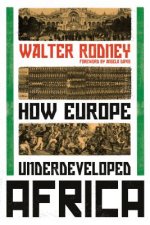
How Europe Underdeveloped Africa
529 Kč -
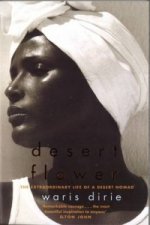
Desert Flower
286 Kč -

Why Does He Do That?
400 Kč -

Letters to a Young Muslim
303 Kč -

Eros and Mysteries of Love
407 Kč -

Life After Darkness
512 Kč -

Puer Tea
772 Kč -

Womanhood
544 Kč -

JFK - 9/11
734 Kč -

Complete Book of Pilates for Men
447 Kč -

Sword of No-sword
646 Kč -

Gypsy Identities 1500-2000
1641 Kč -
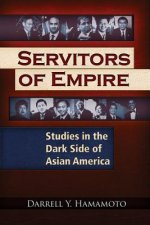
Servitors of Empire
477 Kč -

Colloquial Yiddish
1682 Kč -

Gerotranscendence
3473 Kč -
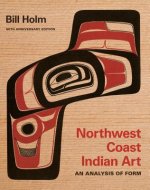
Northwest Coast Indian Art
721 Kč -

Qur'an
810 Kč -
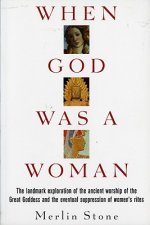
When God Was A Woman
497 Kč -

The Mastery of Love
306 Kč -

Vintage Menswear
435 Kč -

Who Cooked the Last Supper?
428 Kč -

Women Who Run With The Wolves
410 Kč -

The Way of Men
332 Kč -

The Autobiography of Malcolm X
224 Kč -

Second Sex
410 Kč -

Goddesses in Everywoman
303 Kč -

Talking with Female Serial Killers - A chilling study of the most evil women in the world
276 Kč -

Intellectuals and Society
537 Kč -
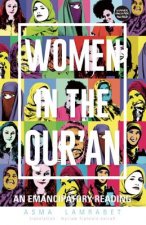
Women in the Qur'an
493 Kč -

Erotic Bondage Book
364 Kč -
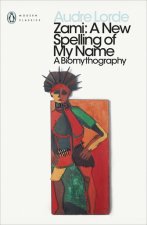
Zami
276 Kč -

Nine Years among the Indians, 1870-1879
619 Kč -
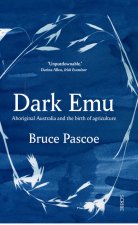
Dark Emu
410 Kč -

Childhood and Society
392 Kč -

Happy City
303 Kč -

The Male Nude
481 Kč -

The Bell Curve
464 Kč -

We Should All Be Feminists
213 Kč -
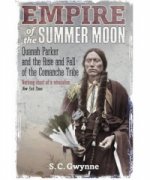
Empire of the Summer Moon
357 Kč -

Radium Girls
276 Kč -

Dance of Anger
276 Kč -

Beauty Myth
357 Kč -

Muqaddimah
541 Kč -

TROUBLEMAKER
363 Kč -
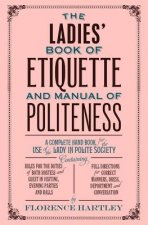
Ladies' Book of Etiquette and Manual of Politeness
306 Kč
Osobní odběr Praha, Brno a 12903 dalších
Copyright ©2008-24 nejlevnejsi-knihy.cz Všechna práva vyhrazenaSoukromíCookies


 Vrácení do měsíce
Vrácení do měsíce 571 999 099 (8-15.30h)
571 999 099 (8-15.30h)